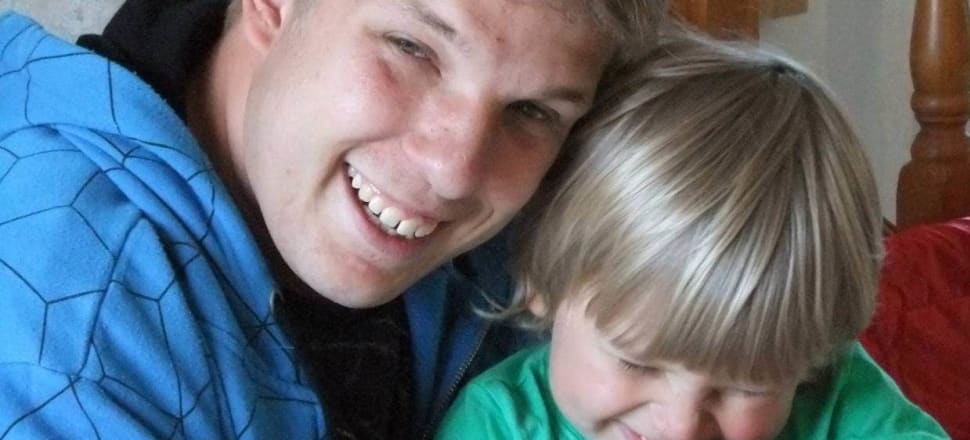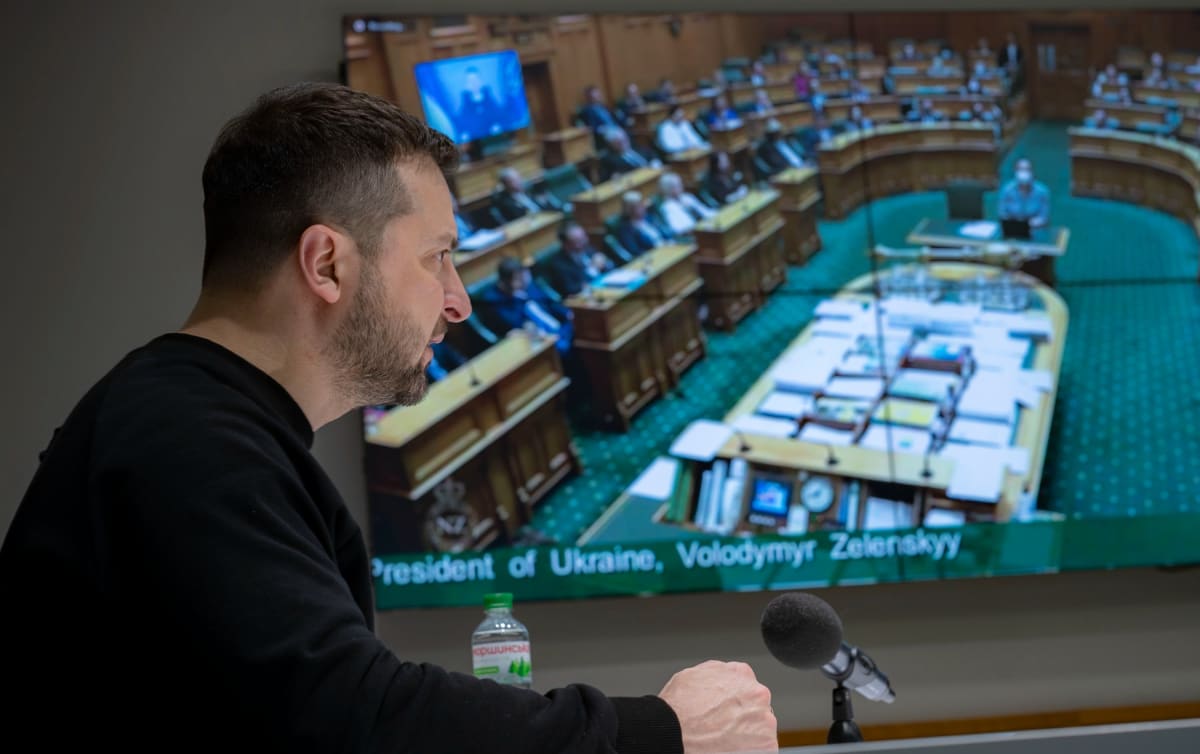
As Ukraine's president reminds the New Zealand Parliament of the two countries' tragic ties, the parents of a man shot down in Flight MH17 plead for peace – not weapons
Comment: Don’t believe those who tell you the people of eastern Ukraine want to be part of Russia, says Tenby Powell. When his volunteers drive an aid convoy into recently liberated villages in eastern Ukraine, people just fall into their arms.
One of the most heartbreaking things, he says, is providing medical care and giving out hundreds of Red Cross and UN food boxes to the queues of sick and injured people – then leaving with a queue of 100 more still waiting. “And you’re driving away leaving people.”
READ MORE: * An interview with Ukraine's Volodymyr Zelensky * The Detail: Ukraine is our 'us too' moment
The former New Zealand Army Lieutenant Colonel has just returned after spending the past six months coordinating the Kiwicare programme, supported by nearly $250,000 in public donations thus far.
But he tells me today that the New Zealand Government needs to do more – and that’s a message that is being delivered by the Ukraine President.
Volodymyr Zelensky is addressing the New Zealand Parliament by video link, in a special sitting on Wednesday morning.
He is highlighting the connections between the two countries, far apart as they are: the New Zealanders who died when MH17 was shot down; the Kiwi soldiers returned this week from training Ukrainian infantry in UK; the aid workers and volunteers who have been on the ground this year. And according to Democracy Project geopolitical analyst Geoffrey Miller, “historic shifts in foreign policy” to unilateral sanctions.
This week, Foreign Affairs Minister Nanaia Mahuta extended sanctions to target 23 individuals and networks behind disinformation campaigns that support the Russian war effort, and then in response to Zelensky's speech, announced an additional $3 million in humanitarian aid. It takes New Zealand's aid contribution to nearly $11m.
"As Ukraine faces a harsh winter, Putin’s actions have further disrupted electricity supply, and are harming the health, safety and well-being of already vulnerable communities," Mahuta says.

The humanitarian aid anticipated requests from Zelensky for more infrastructure like power generators and water purifiers, and more humanitarian aid as Russia 'weaponises winter'.
These are messages hammered home by Tenby Powell, too.
“The president will remind us that any time we put the petrol nozzle in the car, any time we buy grain or oil products at the supermarket and wonder why it’s so expensive, think of Russia and the impact they’ve had on Ukraine,” he says.
“People say, we’ve got to continue the lift of humanitarian aid. The reality is, we’ve got to find a way to end this war. All countries should be extending their military assistance to end this war.”
'Enough mothers’ sons have been slaughtered'
So should New Zealand provide more "lethal support" in the form of guns and now, soldiers on the ground?
No, say Jonn and Wendie Ayley.
They spoke with Newsroom, ahead of Zelensky's address. They are now bringing up their two grandchildren, after their son Rob Ayley died when Malaysian Airlines Flight MH17 was shot down over eastern Ukraine by Russian-backed separatists.
The plane, carrying 298 was passengers and crew, was flying from Amsterdam to Kuala Lumpur when it was shot down in 2014, by a Russian-made anti-aircraft missile.
This month, Dutch judges convicted three men of murder in absentia and sentenced them to life in prison. They are likely to go unpunished as they are thought to be in Russia, which won't extradite them.
“The best thing that New Zealand could do is to urgently engage with President Putin, negotiate a ceasefire, and then urge world leaders to pressure Putin into ending the conflict," Jonn and Wendie Ayley say.
They have lost their son; they do not want to see more deaths. "Enough mothers’ sons have been slaughtered.”
NZ military already stretched
The difficulty in NZ extending its defence contribution beyond its existing training and intelligence support is two-fold.
First, capacity. Just yesterday, the Chief of Defence and Secretary of Defence appeared before a parliamentary select committee to warn that attrition had left NZ’s military stretched.
Secondly, NZ’s public and political appetite for sending soldiers to a faraway war. MP Simon O'Connor says: “He could ask for lethal aid as he has done from most others, but I suspect he is sensitive to NZ Govt’s concerns.”
Aside from a largely symbolic NZ$7.5 million contribution to the UK to purchase weapons for Ukraine, NZ has avoided contributing lethal aid.
O’Connor, National’s associate foreign affairs spokesperson, says Zelensky may ask NZ to instead use its relationships to encourage other countries to give more lethal aid, especially heavy weaponry.
'We need hard power in Ukraine'
Finland Prime Minister Sanna Marin, on her visit to Auckland, also emphasised Ukraine’s need for weapons. “We need hard power when it comes to Ukraine.”
Jacinda Ardern will be aware that, despite public sympathy for Ukraine’s plight, sending Kiwi soldiers might be a step too far.
It was her predecessor Helen Clark’s commitment to the war against Afghanistan's ruling Taliban that tore apart the Labour-Alliance Govt.
The Prime Minister may worry that Zelensky's address will fuel calls to send NZ armed forces to Ukraine; equally, she may worry about how divisive that would be heading into an election.





